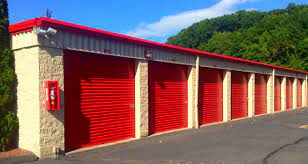
Investing in storage units, also known as self-storage facilities, can be a viable investment strategy under the right circumstances, but it’s important to carefully evaluate the potential risks and rewards before committing to such an investment. Here are some factors to consider when assessing whether storage units are a good investment for you:
Pros of Investing in Storage Units:
- Stable Income: Self-storage facilities can provide a steady stream of rental income, as people and businesses rent units to store their belongings.
- Recession Resistance: Self-storage has shown resilience during economic downturns. During tough economic times, people might downsize their living spaces and require storage for their belongings.
- Low Management Intensity: Compared to other types of real estate, self-storage facilities generally require less hands-on management. You’re not dealing with the complexities of residential tenants, and maintenance can be simpler.
- Scalability: You can start with a smaller facility and gradually expand as demand grows, potentially allowing you to scale your investment over time.
- Diversification: Investing in real estate can add diversification to your investment portfolio, reducing overall risk.
Cons of Investing in Storage Units:
- Market Saturation: In some areas, there might be an oversupply of self-storage units, leading to increased competition and potential difficulty in filling units.
- Location Matters: The success of a self-storage facility heavily depends on its location. Being in an area with high demand and limited competition is crucial.
- Capital Intensive: Initial costs can be significant, including land acquisition, construction, and facility setup.
- Operating Expenses: While management might be less intensive compared to other real estate types, there are still operating costs such as maintenance, security, insurance, and marketing.
- Economic Sensitivity: While storage units are relatively recession-resistant, they’re not entirely immune to economic fluctuations. If a recession is severe enough, demand for storage might still decrease.
- Market Trends: Changes in consumer behavior, such as the rise of digital storage solutions and minimalism, could impact the demand for traditional self-storage units.
- Regulations and Zoning: Local regulations and zoning laws can impact where you can build and operate a storage facility.
Before investing in storage units:
- Research the Market: Understand the demand for storage units in the area where you plan to invest. Analyze factors like population growth, local economy, and existing competition.
- Financial Analysis: Perform a thorough financial analysis, considering factors such as construction costs, operational expenses, rental rates, and potential income.
- Location: Choose a strategic location that aligns with demand and demographic trends.
- Exit Strategy: Have a plan for when you might want to exit the investment and how you’ll go about selling the property.
- Professional Advice: Consult with real estate professionals, financial advisors, and legal experts to ensure you’re making an informed decision.
As with any investment, due diligence is key. The success of investing in storage units depends on careful planning, understanding the market, and being prepared for potential challenges.




 Share
Share Tweet
Tweet Share
Share




Comment